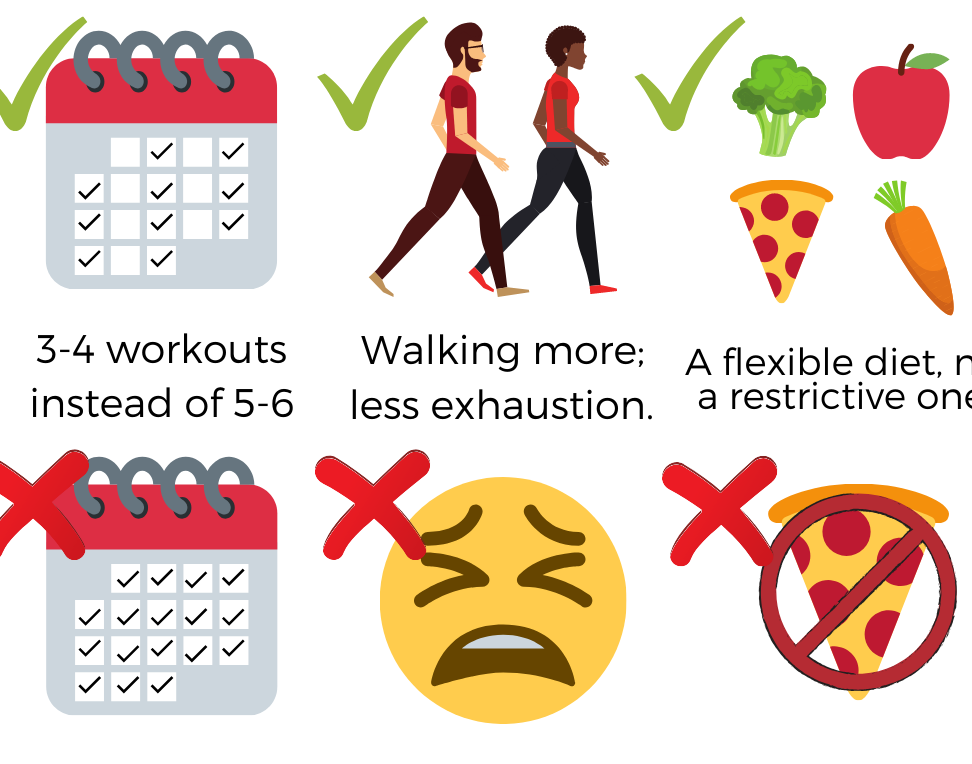Many factors play a role in maintaining good health. In turn, good health can reduce the risk of certain diseases. These include heart disease, stroke, certain cancers, and injuries. Find out what you can do to protect the health of you and your family.
Ways to improve your health
Eat healthy.
What you eat is closely related to your health. A balanced diet has many benefits. By making healthier food choices, you can prevent or treat certain diseases. These include heart disease, stroke and diabetes. Eating a healthy diet can help you lose weight and lower your cholesterol levels.
Move regularly
Exercise helps prevent heart disease, stroke, diabetes and colon cancer. It can help treat depression, osteoporosis, and high blood pressure. People who play sports are also less likely to be injured. Regular exercise can help you feel better and manage your weight. Exercise 5 times a week, 30 to 60 minutes each time. Remember, more exercise is better than no exercise.

If you are overweight, lose weight.
Many Americans are overweight. Being overweight increases the risk of many health conditions. These include:
- hypertension
- high cholesterol
- type 2 diabetes
- heart disease
- stroke
- some cancers
- gallbladder disease
Obesity can also lead to weight-related injuries. A common problem is arthritis in weight-bearing joints such as the spine, hips, or knees. There are several things you can try to help you lose weight and keep it off.
Protect your skin
Sun exposure has been linked to skin cancer. This is the most common type of cancer in the United States. It’s best to limit the time you spend in the sun. Always wear protective clothing and a hat when outdoors. Wear sunscreen on exposed skin like your face and hands all year round. It protects your skin and prevents skin cancer. Choose a broad-spectrum sunscreen that blocks UVA and UVB rays. The SPF should be at least 15. Do not sunbathe or use a solarium.
Practice safe sex
Safe sex is good for your emotional and physical health. The safest form of sex is two people who only have sex. Protect yourself from sexually transmitted diseases (STDs). Condoms are the most effective form of prevention. Talk to your doctor if you need to be tested for an STD.

Do not smoke or use tobacco
Smoking and tobacco use are harmful habits. They can cause heart disease and cancer of the mouth, throat or lung. They are also major contributors to emphysema and chronic obstructive pulmonary disease (COPD). The sooner you stop, the better.
Limit alcohol consumption
Men should not drink more than 2 glasses of alcohol per day. Women should not drink more than 1 drink per day. One drink is equivalent to 12 ounces of beer, 5 ounces of wine, or 1.5 ounces of spirits. Excessive alcohol consumption can damage your liver. It can cause certain types of cancer, such as cancer of the throat, liver, or pancreas. Alcoholism also leads to death in car accidents, homicides, and suicides.
Things to consider
In addition to the factors listed above, take time for general health. See your doctor for regular checkups. This includes your family doctor as well as your dentist and ophthalmologist. Put your health and pension benefits to work for you. Make sure you know what your health insurance covers. Preventive care detects or prevents disease before it begins. This includes certain doctor visits and tests.
You need to make time for breast health. Breast cancer is one of the leading causes of death in women. Men can also get breast cancer. Discuss with your doctor when to start mammograms. If you have risk factors such as family history, you may need to start screening earlier. One way to detect breast cancer is to do a monthly self-exam.
Women should also have routine Pap smears. Women ages 21 to 65 should be screened every 3 years. This may be different if you have certain medical conditions or if your cervix has been removed.
Ask your doctor about other cancer screening tests. Adults should begin colon cancer screening at age 50. Your doctor may want to screen for other types of cancer. It depends on your risk factors and family history.
Keep a list of the medicines you are currently taking. You should also keep up to date with your vaccinations, including an annual flu shot. Adults need a Td booster shot every 10 years. Your doctor can replace it with Tdap. It also protects against whooping cough (whooping cough). Pregnant women need the Tdap vaccine. People who were in close contact with the baby should also get it.
